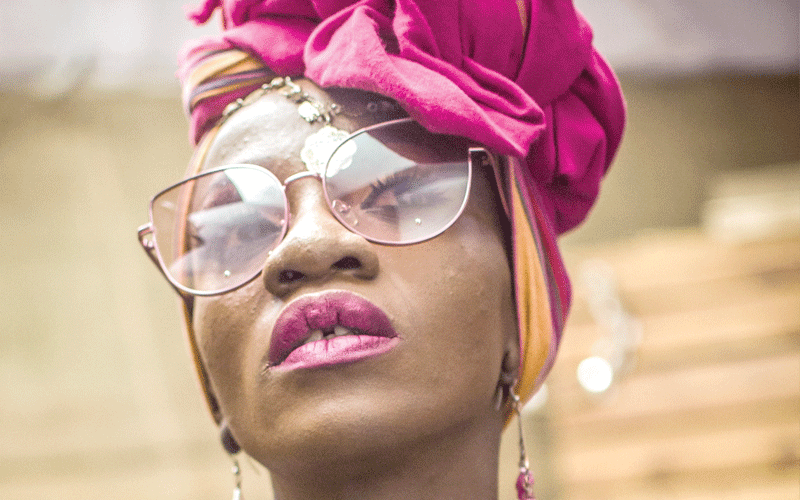Reggae has become a prominent feature among artistes, fans

For many decades, there has been a stereotype in the Kenya’s music circles that one has to be ‘accepted’ in Nairobi to make a successful career in music.
Many artistes are still finding it hard trying to disentangle themselves from this cliché typecast. But is it the true reflection of things?
Sometimes it has been hard to define success, especially in the creative spheres, especially in music.
Is it how much money an artiste earns from their craft, how many songs or albums one gets to release or how many fans one has?
Is it how adored they are by their legion of fans, how much views their content gets from YouTube or their popularity on social media?
At the Kenyan Coast, especially in Mombasa, many artistes still feel inferior to their counterparts in the capital city.
Some say Nairobi has almost every resource to make a successful music career. 
They argue that all the big music labels, management powerhouses, media houses and all the big concerts happen in Nairobi and that is why artistes based in the capital become more successful. But that talk remains that.Just talk.
A crop of reggae musicians from Mombasa have ignored the talk and strived to score big with their music.
Market disruption
Binti Afrika, popularly known as the ‘Queen of Swahili Dub’, for instance, fuses Kiswahili melodies with Dub Music to create a rendition of reggae music that has made her a colossus on the Mombasa music scene.
Dub Music style consists of predominantly instrumental remixes of existing recordings and made the early form of popular electronic music.
Currently under the management of Umoja Sound System’s Selekta Sir Henry, the Barua Kwa Serikali hit maker has been working with different production houses among them Ever Blazing under producer Hopetone Blazze and Scotland’s Mungo’s Hi Fi.
Her manager is her greatest fan and like they say, luck starts at home. So, she has to be appreciated first by the people close to her before it’s done elsewhere.
“I hold her in high regard. She is a complete musician. Her lyrical prowess and vocals control is in a new whole different level. Only a few Kenyan artistes have successfully infused proper Kiswahili with dub and made it globally accepted.
I chose to work with Binti Afrika firstly because of what she stands for; youth empowerment. Her sultry voice is just amazing to listen to,” Sir Henry tells Spice.
Mombasa has also produces a great reggae-dancehall musician in Frankie Dee. Currently working under the management of the Mombasa-based Vincent Kras, Frankie is at the moment working on a collaboration projects with one of Jamaica’s finest reggae-dancehall musicians, Busy Signal, working with several Jamaican music producers.
He has also performed on stage with a number other Jamaican reggae singers including lovers rock star Romain Virgo.
According to him, Mombasa is the ‘motherland’ of reggae in Kenya that has always overshadowed by the thriving and hype nature of capital Nairobi.
“Reggae is not like bongo music or other music genres that come marked with clear bounder lines. Reggae is international.
When I decided to pursue this genre, I was looking to go beyond the local market. I once tried my hand in bongo music, but I found the space too saturated.
But when I started doing reggae, everything just fit in perfectly. Mombasa has all the environmental set up for the Caribbean vibe that comes with reggae and I found it the perfect place to do what I know best. The city has always been a reggae hub and always will be,” he says.
Mombasa based reggae musician Cloud Tissa is one of the Kenyan artistes featured highly on Reggaeville — one of the biggest reggae music platforms in the world.
He runs his own label called Maisha Records and works independently. His most recent musical work is found in the just-released album, Survival 99, a great masterpiece.
“I’ve grown up listening to reggae, one of Mombasa’s music trademarks alongside bango and taarab. Generations have changed, but reggae music will always be here.
It’s just that people like to relate reggae with other things and put some negativity on it and the artistse.
And as much as Mombasa has always been a reggae hub, the media hasn’t highlighted it, as it ought to,” says Tissa, who came into the scenes in 1998 and realized his major breakthrough in 1999 with his song It’s Up To You, a collaboration with Rufftone.
The fusion
He adds: “Reggae has taken me to levels I never thought I would reach. I have tried dancehall, but had to go back to reggae because this is what gives me the actual fulfillment; more airplay, shows, international tours and such.”
One of Mombasa’s most promising reggae artistes Kitole Kenda blends reggae with Swahili R&B.
He came first into the light in 2012 with his jam Nataka Jua, but is currently recording under Blue Box Radio, a UK label under which he did the Mosaic album.
“For me, reggae is educational and this is why I chose it over other genres because I get the space to be a key influencer to the society,” says Kenda.
According to industry stakeholders reggae music in Mombasa is a thing to look out for.
“The industry has been progressive and has artistes and producers with great potential. In this regard, we have plans of launching an annual reggae beach party concert with an aim of drawing a worldwide audience,” says music manager Vincent Kras.



